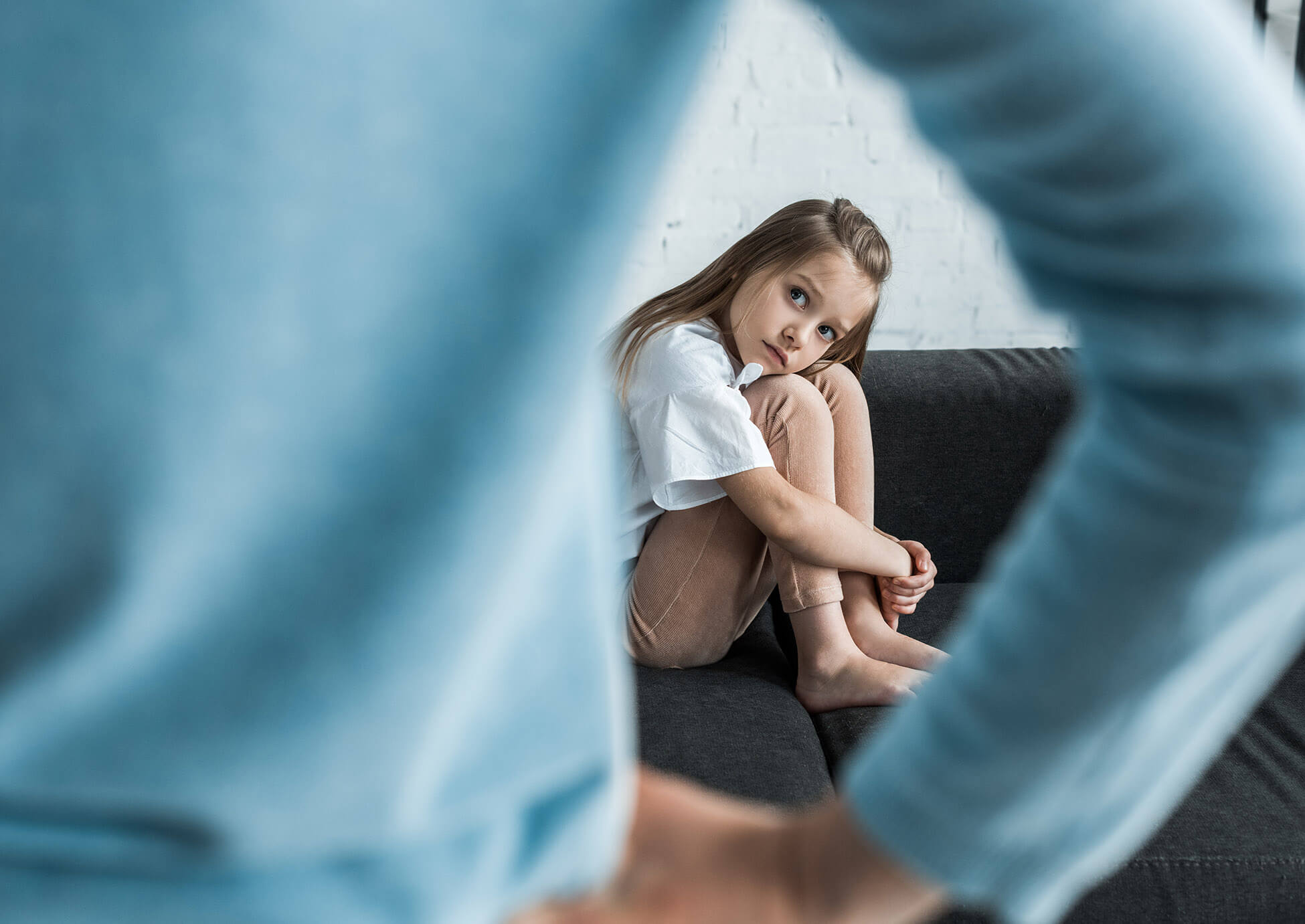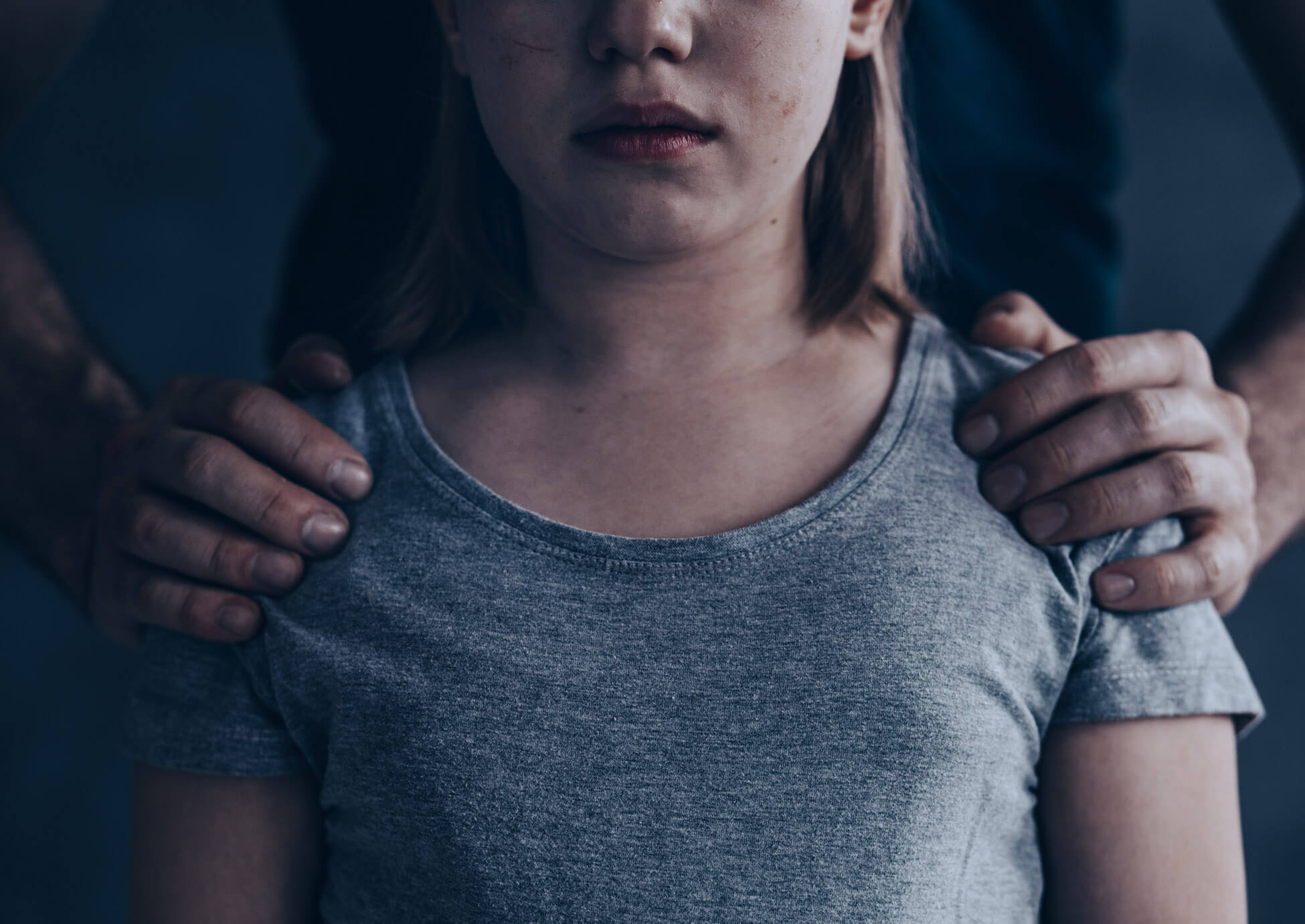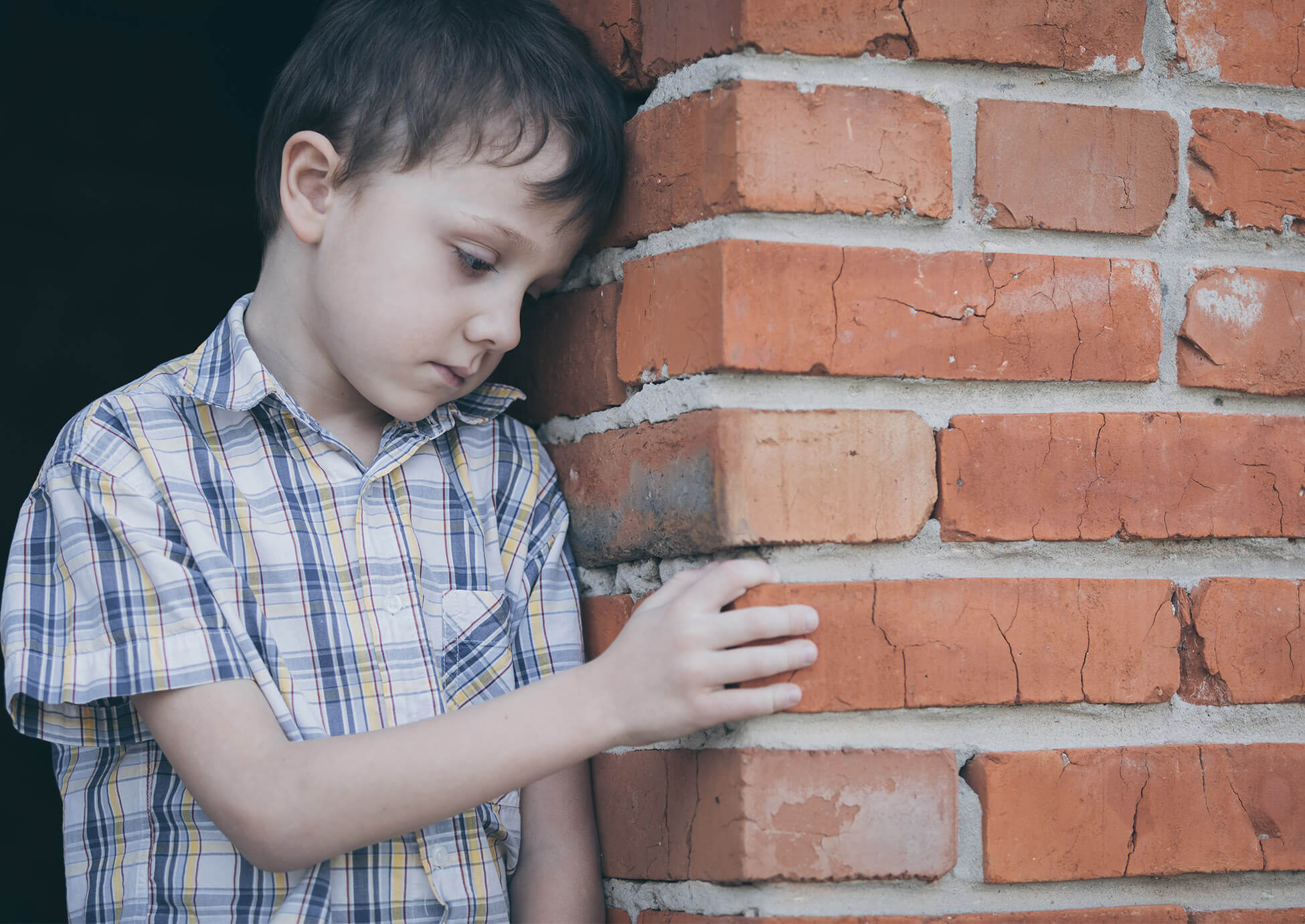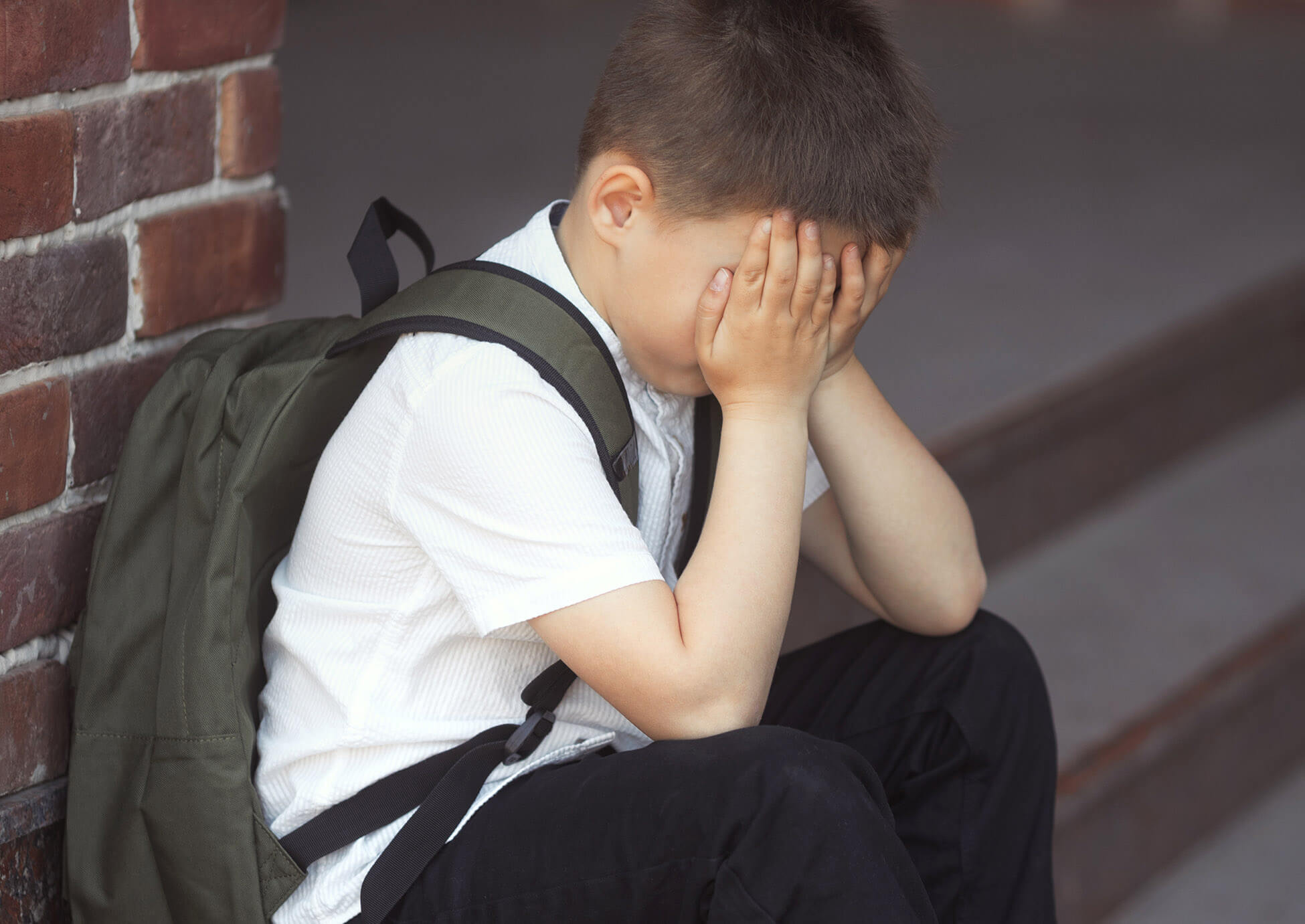The Dangers of Physical Punishment and Spanking for Kids
Positive parenting leads to positive futures for generations to come.
American SPCC provides parenting education and support as the most effective way to support families and nurture children.
The following resources are made possible through contributions by child and family advocates like you.

By Sarah R. Moore
Founder of Dandelion Seeds Positive Parenting & Trusted Parenting Network Member
Physical punishment of children has long been considered an “acceptable” strategy for correcting behavior, as demonstrated by 49% of U.S. households still using it as a form of child discipline.1 But is it really the best form of discipline in child rearing? And are there risk factors that might make us want to consider alternatives?
Let’s explore what happens when children are physically punished based on the latest research in child development. If you read no farther than this, however, please know that physical punishment is not recommended for any child or for any reason. In fact, it’s a significant risk factor for a number of worrisome outcomes in children’s lives.
Other terms for physical punishment
It’s important to know that physical discipline goes by many names. Some call it spanking, corporal punishment, smacking, slapping, tapping, or physical force. Other terms also exist, but regardless of vocabulary, all forms of physically harming a child have been shown to have negative outcomes.

Sarah R. Moore
Founder of Dandelion Seeds Positive Parenting
Sarah R. Moore is the founder of Dandelion Seeds Positive Parenting and author of Peaceful Discipline: Story Teaching, Brain Science & Better Behavior. She’s a public speaker, armchair neuroscientist, and most importantly, a Mama. She’s a lifelong learner with training in child development, trauma recovery, interpersonal neurobiology, and improv comedy. As a certified Master Trainer in conscious parenting, she helps bring JOY, EASE, and CONNECTION back to families around the globe. Based in Colorado, Sarah and her family spend much of their time worldschooling. She speaks French and eats Italian food like a pro!) Her heart’s desire is to bring greater peace and healing to the world through loving and respectful parenting. Follow her on Instagram, Facebook, YouTube, & Twitter.
Why is corporal punishment still so prevalent?
Habits are hard to break
In generations past, many adults lacked easy access to the science and research people have now. More often than not, they simply didn’t understand the long term negative effects physical punishment could have on their children. Harming their children for “discipline” was part of standard family psychology. Rarely, under almost any circumstance, did anyone consider any sort of harm synonymous with child abuse.
Nowadays, however, most parents know – whether from health care providers or other sources – that spanking and other forms of physical punishment are no longer recommended. This awareness is a likely factor in corporal punishment’s overall decline in recent years.2


Many caregivers have become more aware of how to promote family health not only physically, but also emotionally. Awareness and advocacy of human rights, including respecting the youngest members of society, are growing globally. Even the United Nations, as a subset of its international human rights law, is striving to end all forms of violence against children by 2030.3
Nevertheless, habits are hard to break, and many families are still learning why this shift away from corporal punishment is so critically important. In many cases, parents are simply passing along what they experienced growing up, and genuinely struggling to shift patterns. They may legitimately want to stop harming their children, and they’re much more aware of children’s rights than in prior generations.
Feeling drawn to more positive ways of parenting, some parents opt for what they believe are gentler versions of the physical punishment they received when they were growing up. They may sincerely have their children’s best interests at heart, but still struggle to stop all forms of physical punishment.
This begs the question of whether “gentle” physical punishment exists.
Are there “gentler” forms of physical punishment?
Some adults say it’s better if the non-angry parent is the one to carry out the spanking, or if the spanking is done “with love,” it’s fine.
The trouble here lies in the child’s interpretation of these approaches. For example, the child may learn, “If someone harms me and calls it love, it’s still love.” Likewise, they may grow to feel they deserve to be physically harmed by people who love them. These are clearly not the messages that we want our children to internalize, especially since their nervous systems can’t tell the difference between physical punishment done “with love” and any other kind of pain.
Likewise, some parents say that if there’s no physical injury to the child and the corporal punishment is enacted just to “get their attention,” it’s better. As it turns out, though, the emotional damage from fear-based parenting still affects the child negatively. Fear alone can cause problematic physical changes in the child’s brain, such as activation of the amygdala and the release of stress hormones in the body.4




Can children who are physically punished turn out “fine?”
The trouble with thinking, “We turned out fine, so our kids will, too” is that there’s no way to predict which children actually won’t turn out “fine.” Some will suffer greatly.
It’s also important to note the concept of being “fine” is highly subjective. In recent years, we’ve learned a great deal about how violence can cause psychological damage and negative health effects that can’t always been seen, or at least not right away.
Related Article | Spanking: 3 Reasons No One Turns Out Fine & How to Break the Cycle
Possible outcomes of physical punishment of children
Although most parents’ “goal” of using physical punishment is increased obedience or compliance, research suggests it will likely backfire. The negative long-term outcomes of spanking are prevalent and concerning. Here’s why.
Research shows physical punishment increases the following:
- Potential for increased aggressive behavior; child aggression may increase and endure into adulthood. 5 Further, corporal punishment to “fix” children’s aggressive behavior may actually exacerbate physical aggression continually. Adult aggression is not the antidote to child aggression; it only fuels it.
- Negative developmental outcomes, including lower IQ.6
- Continuation of family violence being passed down from generation to generation, creating a deep trauma history and increased risk of psychiatric disorders.7
- Greater likelihood of future substance abuse (alcohol and street drugs), as well as greater risk for suicide.8
- Increased risk factor for anxiety disorders and antisocial behavior.9
Perhaps the most startling outcome, above and beyond these negative outcomes, is the long-term effect on children’s well-being that mental health professionals have noted for decades. This is among the most prevalent effects of corporal punishment, giving further proof that these children are not “turning out fine.”
How physical punishment affects long-term wellbeing
Research has started to show that spanking can lead to negative long-term effects for a child, even being linked to a formal Adverse Childhood Experience, or ACE.
Although spanking is not formally part of the original ten “ACEs” that several public health studies follow today, ongoing scholarship suggests that “spanking is empirically similar to physical and emotional abuse” and that their occurrence should be considered as an ACE in future research. 10
In their work towards understanding and preventing ACEs, the Centers for Disease Control and Prevention suggests legislative actions and ongoing education around how the U.S. views corporal punishment, saying:
“Experiencing harsh physical punishment as a child increases the risk for involvement in crime and violence in adolescence and later perpetration of violence toward a partner and one’s own children. Experiencing harsh physical punishment as a child is also associated with mental health problems, lower academic performance, and lower self-esteem.” 11
Although some adults still imagine a clear difference between spanking and child abuse, it’s faulty logic: research continues to show that a child’s developing brain cannot tell the difference.
More on ACES
ACEs are preventable, potentially traumatic events in a child’s life that studies have linked to a greater risk of negative health outcomes later in life. They include neglect, experiencing or witnessing violence, having a family member attempt or die by suicide, as well as enivornmental experiences that can undermine their sense of safety, stability, and bonding, such as growing up in a household with substance use, mental health problems, or instability due to parental separation or incarceration of a parent, sibling or other member of the household.
ACEs can result in toxic stress and are associated with a wide range of adverse behavioral, health, and social outcomes, including lower educational achievement, lower economic success, impaired social success in adulthood, alcoholism, depression, drug abuse, eating disorders, obesity, high-risk sexual behaviors, smoking, suicide, and certain chronic diseases.
Why spanking doesn’t “work”
Perhaps surprisingly, physical punishment also doesn’t “work” to change behavior problems. Although some adults would argue that corporal punishment deterred them from continuing a certain behavior, what research finds about children’s externalizing behavior problems is that kids learn to hide the undesirable behavior rather than truly stopping it.
In fact, physical punishment may even make behavior worse, according to researchers at The University of Texas at Austin:12
“…Parents hit their children because they think doing so will improve their behavior,” Gershoff said. “Unfortunately for parents who hit, our research found clear and compelling evidence that physical punishment does not improve children’s behavior and instead makes it worse…”
The same research also suggested that spanking and other forms of child punishment created more external problem behaviors over time such as ‘increased aggression, increased antisocial behavior, and increased disruptive behavior in school.”
Studies like these suggest that corporal punishment appears to have only negative outcomes, especially as compared to other discipline strategies that involve no harsh physical punishment of children.
Is physical punishment the same as child abuse?
Severe physical punishment of children, including spanking, can indeed be considered child abuse and can have significant negative outcomes. Physical punishment research conducted by Harvard University in 2021 suggests that a child’s brain can’t distinguish spanking from other forms of violence:
“Spanking may cause changes in the same areas of a child’s brain affected by more severe physical and sexual abuse… It’s a significant finding because many parents don’t think of spanking as being violent,” says Vincent J. Palusci, MD, a pediatrician and editor-in-chief of the journal Child Maltreatment.13
How do parents know if the physical force they’re using is considered harsh physical punishment?
Any physical or mental violence against a child can lead to associated child behaviors that are problematic. The trouble is that physical punishment of children isn’t about the adult’s intent; rather, it’s about the child’s perception of the experience.
The nervous system of a child who’s physically punished has no way of “translating” the adult’s intent. According to the same Harvard researchers mentioned above, corporal punishment is perceived only as a threat, and the nervous system responds accordingly.
Research has long underscored the negative effects of spanking on children’s social-emotional development, self-regulation, and cognitive development, but new research shows that spanking alters children’s brain response in ways similar to severe maltreatment and increases perception of threats.
If you suspect a child is being abused, neglected, or exposed to an unsafe situation, trust your instincts and report it.
To report suspected child abuse, please call the National Child Abuse Hotline at
1-800-4-A-CHILD (1-800-422-4453).
Is spanking legal?
How do we stop the physical punishment of children?
- We begin with compassion, knowing that people will be most open to learning new parenting strategies–including those that include no physical punishment – if they feel safe to learn, rather than attacked for their prior choices.
- We prioritize education about not only the damage of physical punishment but also, the alternatives and other methods parents can use instead. Simply telling adults not to spank their kids won’t go very far if they don’t know what to do, instead.
- We protect children and halt child maltreatment by legally abolishing the physical punishment of children everywhere. Banning corporal punishment will have only positive child outcomes.
- We make it a global initiative and empower adults with non-violent parenting skills. We help parents embody the realization that physical punishment has no place in healthy homes or in the future of peaceful societies.


Many resources are available to educate parents and give them safer alternatives, such as American SPCC’s Parenting Resource Center and online courses.
References & Sources
- https://www.unh.edu/ccrc/sites/default/files/media/2022-02/corporal-punishment-current-rates-from-a-national-survey.pdf
- https://www.ncbi.nlm.nih.gov/pmc/articles/PMC7385677/
- https://violenceagainstchildren.un.org/
- https://www.nm.org/healthbeat/healthy-tips/emotional-health/5-things-you-never-knew-about-fear
- https://www.ncbi.nlm.nih.gov/pmc/articles/PMC3768154/
- https://www.webmd.com/parenting/news/20090924/kids-who-get-spanked-may-have-lower-iqs
- https://www.ncbi.nlm.nih.gov/pmc/articles/PMC3447048/
- https://www.ncbi.nlm.nih.gov/pmc/articles/PMC7983058/
- https://www.apa.org/monitor/2012/04/spanking
- https://pubmed.ncbi.nlm.nih.gov/28126359/
- https://www.cdc.gov/violenceprevention/pdf/preventingACES.pdf
- https://news.utexas.edu/2021/06/29/evidence-against-physically-punishing-kids-is-clear-researchers-say/
- https://news.harvard.edu/gazette/story/2021/04/spanking-children-may-impair-their-brain-development
- http://www.endcorporalpunishment.org/wp-content/uploads/country-reports/USA.pdf



Sarah R. Moore
Founder of Dandelion Seeds Positive Parenting
Sarah R. Moore is the founder of Dandelion Seeds Positive Parenting and author of Peaceful Discipline: Story Teaching, Brain Science & Better Behavior. She’s a public speaker, armchair neuroscientist, and most importantly, a Mama. She’s a lifelong learner with training in child development, trauma recovery, interpersonal neurobiology, and improv comedy. As a certified Master Trainer in conscious parenting, she helps bring JOY, EASE, and CONNECTION back to families around the globe. Based in Colorado, Sarah and her family spend much of their time worldschooling. She speaks French and eats Italian food like a pro!) Her heart’s desire is to bring greater peace and healing to the world through loving and respectful parenting. Follow her on Instagram, Facebook, YouTube, & Twitter.
Resources like these are provided by American SPCC – a national nonprofit dedicated to building positive childhoods for all children by empowering parents and caregivers with research-backed education and support.
This work is made possible by passionate donors and community advocates. Learn how you can get involved and support the mission here.
Previous Section

